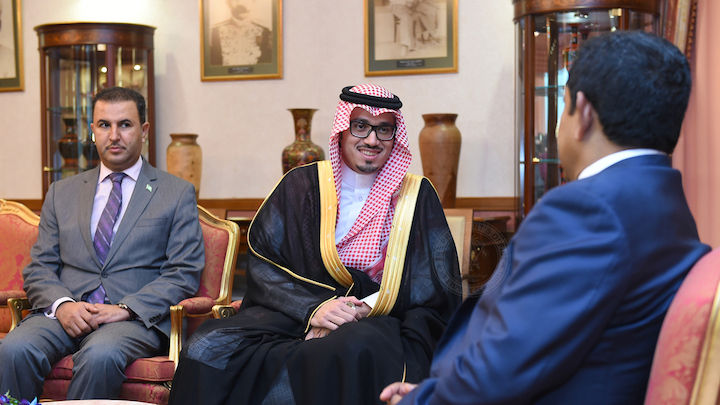No intention of buying land in Maldives, asserts Saudi embassy
The Saudi Arabian government has no intention of investing in a mega project or buying an island or atoll in the Maldives, the Saudi embassy has asserted, dismissing the “widely circulated baseless and unfounded allegations”.

11 Mar 2017, 9:00 AM
The Saudi Arabian government has no intention of investing in a mega project or buying an island or atoll in the Maldives, the Saudi embassy has declared.
Following the opposition’s announcement of a mass protest on March 24 to coincide with the official visit of King Salman, the Saudi embassy in Malé put out a press statement Thursday night dismissing the “widely circulated baseless and unfounded allegations”.
“[T]he Government of the Kingdom of Saudi Arabia neither invest in such project nor has an intention doing so or buying a land/island or an atoll, in the Republic of Maldives,” it asserted.
A forthcoming investment “from the Saudi government, or rather leading figures in Saudi” was first announced by President Abdulla Yameen in January.
Become a member
Get full access to our archive and personalise your experience.
Already a member?
Discussion
No comments yet. Be the first to share your thoughts!
No comments yet. Be the first to join the conversation!
Join the Conversation
Sign in to share your thoughts under an alias and take part in the discussion. Independent journalism thrives on open, respectful debate — your voice matters.




